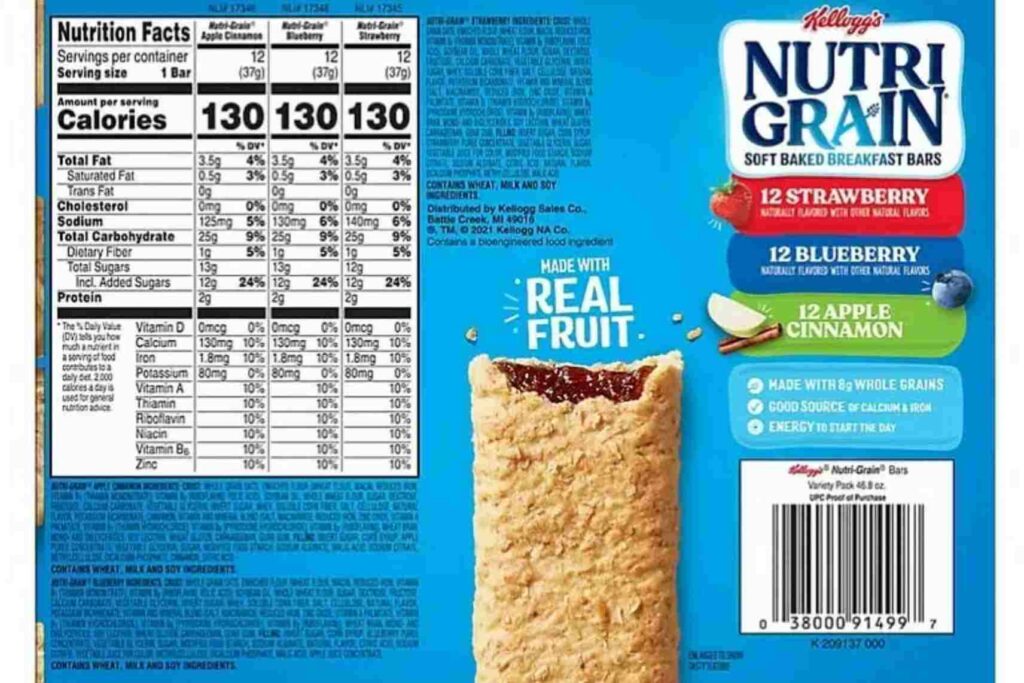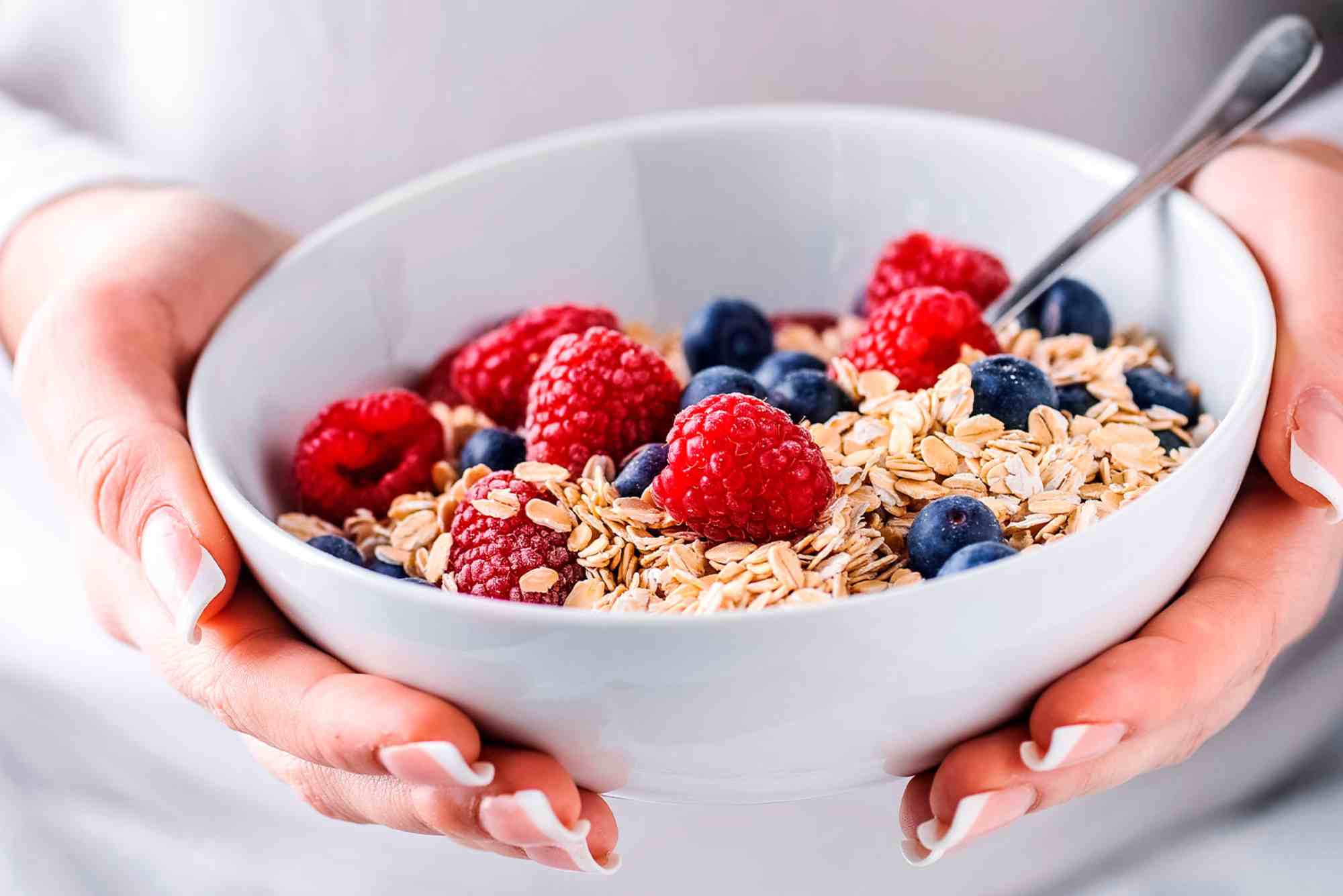Cereal bars have become a popular snack choice for people of all ages. Their convenience, portability, and perceived health benefits make them an attractive option for those with busy lifestyles. Whether you’re looking for a quick breakfast on the go, a midday snack, or a post-workout refuel, cereal bars offer a versatile solution. But what makes cereal bars a good choice, and are they truly beneficial for your health? This article delves into the nutritional value and health benefits of cereal bars, helping you understand why they can be a valuable addition to your diet.
Nutritional Value of Cereal Bars

Understanding the nutritional content of cereal bars is essential to appreciate their benefits fully.
Macronutrients in Cereal Bars
Cereal bars are composed of three primary macronutrients: carbohydrates, proteins, and fats. Each of these plays a crucial role in providing energy and maintaining overall health.
Carbohydrates: Cereal bars are often rich in carbohydrates, which are the body’s primary energy source. They help in maintaining blood sugar levels and providing sustained energy throughout the day. The type of carbohydrates found in cereal bars can vary, with some bars containing whole grains that offer more fiber and nutrients. Simple carbohydrates provide quick energy, while complex carbohydrates ensure prolonged energy release.
Proteins: Many cereal bars contain a moderate amount of protein, which is vital for muscle repair and growth. Protein also helps in keeping you feeling full for longer periods, reducing the likelihood of overeating. Bars with added nuts, seeds, or protein powders can significantly boost protein content, making them suitable for both muscle building and weight maintenance.
Fats: While fats have a bad reputation, they are necessary for absorbing certain vitamins and providing long-term energy. Many cereal bars include healthy fats from nuts, seeds, and oils, which contribute to heart health and satiety. These healthy fats are essential for brain function and hormone production.
Micronutrients in Cereal Bars
In addition to macronutrients, cereal bars also offer a variety of essential micronutrients.
Vitamins: Cereal bars often contain added vitamins such as vitamin A, vitamin C, and various B vitamins. These vitamins play a role in everything from immune function to energy production. For example, B vitamins are crucial for converting food into energy, while vitamin C supports immune health. Some bars are also fortified with vitamin D, which is important for bone health and immune function.
Minerals: Important minerals like iron, calcium, and magnesium can be found in cereal bars. These minerals are crucial for bone health, oxygen transport, and muscle function. Iron is essential for preventing anemia, while calcium and magnesium support strong bones and teeth. Zinc, another common addition, aids in immune function and wound healing.
Health Benefits of Eating Cereal Bars

Cereal bars offer several health benefits that make them a great addition to your diet.
Energy Boost from Cereal Bars
One of the most notable benefits of cereal bars is their ability to provide a quick energy boost.
Quick Source of Energy: The high carbohydrate content in cereal bars makes them an excellent source of quick energy. They are particularly useful for athletes or individuals who need a fast energy boost during the day. The combination of simple and complex carbohydrates ensures both immediate and sustained energy release.
Ideal for Pre/Post Workout Snacks: Cereal bars can be an ideal snack before or after workouts. They provide the necessary fuel for exercise and help in muscle recovery post-exercise. Consuming a cereal bar before a workout can enhance performance, while having one afterward can aid in replenishing glycogen stores and repairing muscles.
Weight Management with Cereal Bars
Cereal bars can be a helpful tool for those looking to manage their weight effectively.
Portion Control: One of the significant advantages of cereal bars is their pre-portioned sizes, which can help prevent overeating. They provide a satisfying snack without the need for large portions. This can be particularly beneficial for individuals who struggle with portion control and mindless eating.
Low-Calorie Options: Many cereal bars are designed to be low in calories while still being nutritious. These options can help in maintaining a calorie deficit, which is essential for weight loss. By choosing bars with fewer calories but high nutrient density, you can enjoy a satisfying snack without compromising your dietary goals.
Satiety: The combination of protein and fiber in many cereal bars helps in promoting a feeling of fullness, which can reduce overall calorie intake throughout the day. This makes them a great option for those looking to manage their appetite and avoid unhealthy snacking.
Additional Health Benefits of Cereal Bars
Beyond energy and weight management, cereal bars offer other health benefits.
Dietary Fiber: Many cereal bars are high in dietary fiber, which is essential for digestive health. Fiber helps in regulating bowel movements, preventing constipation, and maintaining overall gut health. Fiber-rich cereal bars can also aid in controlling blood sugar levels and reducing cholesterol. Soluble fiber, in particular, can help lower cholesterol levels and improve heart health.
Heart Health: Cereal bars that contain whole grains and nuts can be beneficial for heart health. These ingredients help in reducing cholesterol levels and improving heart function. Whole grains are linked to a lower risk of heart disease, while nuts provide healthy fats that support cardiovascular health. Omega-3 fatty acids, found in some seeds and nuts, are particularly beneficial for reducing inflammation and improving heart health.
Convenience and Versatility: The convenience of cereal bars makes them an excellent option for busy lifestyles. They can be easily carried in a bag or pocket, providing a healthy snack option anytime, anywhere. Whether you’re traveling, at work, or on a hike, cereal bars offer a nutritious alternative to less healthy snack options.
Mental Health: The nutrients found in cereal bars, such as B vitamins, healthy fats, and amino acids, can support mental health. These nutrients are essential for brain function and can help in reducing stress and improving mood.
Choosing the Right Cereal Bars
Not all cereal bars are created equal. Here are some tips for choosing the healthiest options.
Read the Labels: Always check the nutritional labels to understand what you are consuming. Look for bars with natural ingredients and minimal added sugars. Avoid bars with long lists of unrecognizable ingredients, which can indicate the presence of artificial additives and preservatives.
Avoid High Sugar Content: Some cereal bars can be high in sugar, which can negate their health benefits. Aim for bars with low sugar content. Natural sweeteners like honey or dates are preferable to refined sugars and corn syrups. Bars with added fiber and protein can help mitigate the blood sugar spikes associated with high sugar content.
Consider Dietary Needs: If you have specific dietary needs, such as gluten-free or vegan, make sure to choose cereal bars that cater to these requirements. There are many options available that accommodate various dietary restrictions, ensuring that everyone can enjoy the benefits of cereal bars.
How to Incorporate Cereal Bars into Your Diet
Incorporating cereal bars into your diet can be easy and beneficial. Here are some ideas:
Breakfast on the Go: For those hectic mornings when you don’t have time to prepare breakfast, grab a cereal bar along with a piece of fruit and a yogurt for a balanced meal. This combination provides a good mix of carbohydrates, proteins, and fats to start your day.
Midday Snack: Instead of reaching for unhealthy snacks, keep a cereal bar at your desk for a nutritious pick-me-up during the afternoon slump. Pair it with a handful of nuts or a piece of fruit for an extra boost of energy and nutrients.
Pre-Workout Fuel: Eat a cereal bar about 30 minutes before your workout to provide the energy needed for optimal performance. Choose a bar with a good balance of carbohydrates and protein to fuel your exercise.
Post-Workout Recovery: After exercising, consume a cereal bar to help replenish glycogen stores and support muscle recovery. Opt for a bar that includes protein and carbohydrates to aid in the repair and rebuilding of muscle tissues.
Travel Companion: Whether you’re on a road trip or a long flight, having cereal bars on hand can prevent unhealthy snack choices and keep you energized. They are easy to pack and can be eaten quickly without any preparation.
Healthy Dessert: Some cereal bars can double as a healthy dessert option. Look for bars with natural sweetness from fruits and low added sugars to satisfy your sweet tooth without the guilt.
Homemade Cereal Bars
If you prefer to control the ingredients in your snacks, consider making homemade cereal bars. This way, you can ensure they are free from artificial additives and tailored to your taste preferences. Here is a simple recipe to get you started















